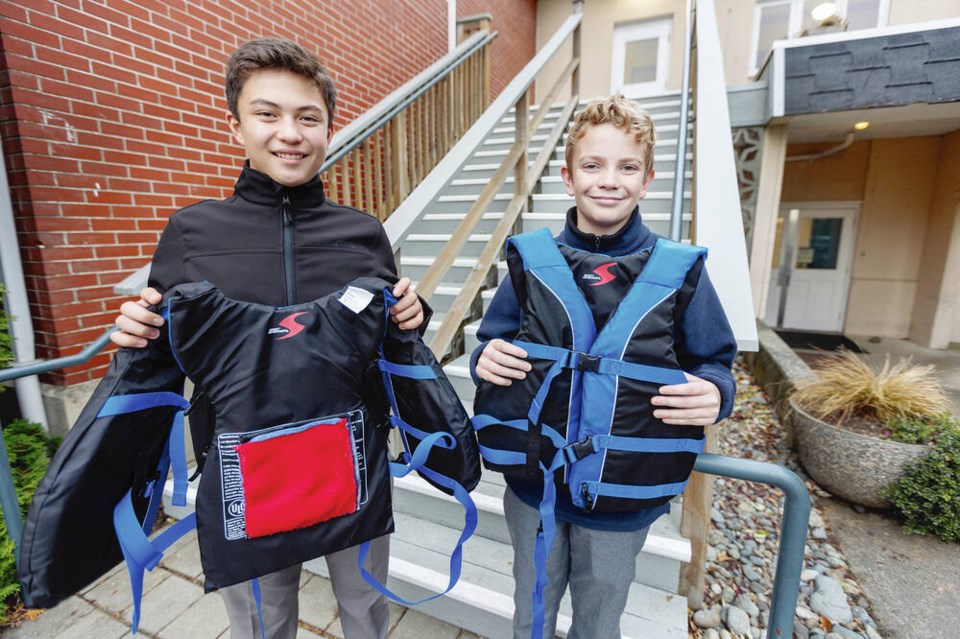The future looks hot for two 13-year-olds whose self-heating life-jacket was recently named as a finalist in the upcoming 2022 Science Fair B.C.’s Youth Innovation Showcase.
Liam Pope-Lau and Fraser Tuck, Grade 8 students at St. Michaels University School, created LifeHeat: The Self-Heating Lifejacket to prevent hypothermia when someone falls into frigid waters.
The idea came to Pope-Lau after he was tossed into the ocean during a sailing lesson about three years ago. Even though the accident happened in the summer, the 11 C water came as a shock to the young sailor.
“I couldn’t believe how cold it was,” said Pope-Lau. “I did some research to find out how may people die of hypothermia every year and thought how preventable their deaths would be if they had a heated life-jacket.”
He teamed up with Tuck, a classmate, to lay out the groundwork for the concept two years ago, when the two were in Grade 6, entering it in science fairs.
“We knew what we wanted, something that would instantly work should a person fall in the water,” said Tuck. “Sudden exposure to water 15 degrees or lower can cause cold water shock, making it hard for a person to think.”
Their invention is a pouch filled with a chemical mixture based on calcium chloride. The chemical creates heat when it comes in contact with water.
The pouch, which is supposed to be located close to a person’s lower back, is meant to keep the core warm, extending the survival time in cold waters. Roughly 12-inches square, it can be sewn or glued to the inside of an existing life-jacket. The pair has also explored making it refillable, rather than just a single-use product.
The two have built about a dozen prototypes, improving on their original design through trial and error.
Last year, they decided to field test their invention themselves.
The donned their prototype life vests and jumped into the ocean at Oak Bay Marina.
“The water was cold, but the vests got hot so quickly — we had to scramble to get them off,” said Pope-Lau.
The two subsequently tinkered with the chemical amount and composition to ensure the heat was long-lasting but not too intense.
The two have entered their invention at science fairs and won five awards at the Vancouver Island Regional Science Fair last year.
The students have since received a patent for their innovation.
The virtual Youth Innovation Showcase, where pitches are judged by industry experts, was open to individuals or teams of two students age 12 to 15 or 16 to 19. The top five projects from each age category made it to the finals, where they will have their 45-second pitch video and one-page report distributed to judges between Monday and Nov. 25.
The grand prize in each age category is $5,000, and the winners will be announced at the Youth Innovation Showcase Awards Show on Nov. 30
The two say if they win, they would likely invest the prize money into their product.
Pope-Lau said the experience has made him consider a career in business or economics, while Tuck is more interested in technology and science, especially chemistry.



